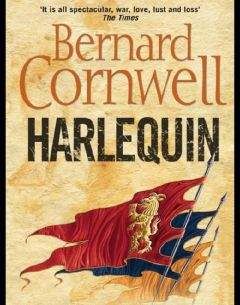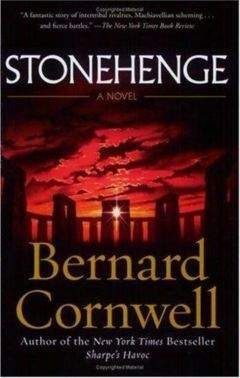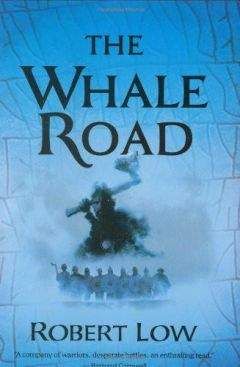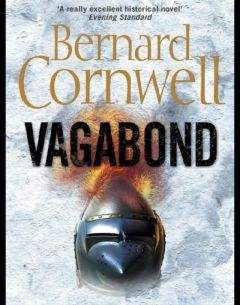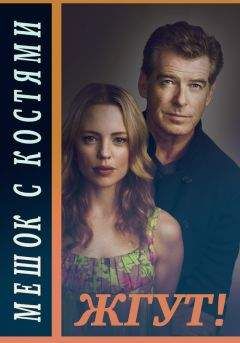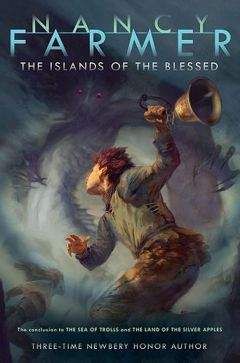Ознакомительная версия.
Thomas felt nothing now. It was all darkness and no pain. He was dancing the rope to hell, his head to one side, body still swinging slightly, legs twitching, hands curling and feet dripping. The army stayed five days in Caen. Some three hundred Frenchmen of rank, all of whom could yield ransoms, had been taken prisoner, and they were escorted north to where they could take ship for England. The injured English and Welsh soldiers were carried to the Abbaye aux Dames where they lay in the cloisters, their wounds stinking so high that the Prince and his entourage moved to the Abbaye aux Hommes where the King had his quarters The bodies of the massacred citizens were cleared from the streets. A priest of the King's household tried to bury the dead decently, as befitted Christians, but when a common grave was dug in the churchyard of Saint Jean it could hold only five hundred bodies, and no one had time or spades enough to bury the rest, so four and a half thousand corpses were tipped into the rivers. The city's survivors, creeping out of their hiding places when the madness of the sack was over, wandered along the riverbanks to search for their relatives among the corpses that were stranded by the falling tide. Their searches disturbed the wild dogs and the screeching flocks of ravens and gulls that squabbled as they feasted on the bloated dead. The castle was still in French hands. Its walls were high and thick, and no ladder could scale them The King sent a herald to demand the garrison's surrender, but the French lords in the great keep politely refused and then invited the English to do their worst, confident that no mangonel or catapult could hurl a stone high enough to breach their lofty walls. The King reckoned they were right, so instead ordered his gunners to break down the castle's stones, and the army's five largest cannon were trundled through the old city on their wagons. Three of the guns were long tubes made from wrought-iron strips bound by steel hoops, while two had been cast in brass by bell-founders and looked like bulbous jars with swollen oval bellies, narrow necks and flaring mouths. All were around five feet long and needed shear-legs to be swung from their wagons onto wooden cradles.
The cradles were set on planks of wood. The ground under the gun carriages had been graded so that the guns could point up towards the castle's gate. Bring down the gate, the King had ordered, and he could release his archers and men-at-arms in an assault. So the gunners, most of them men from Flanders or Italy who were skilled in this work, mixed their gunpowder. It was made from saltpetre, sulphur and charcoal, but the saltpetre was heavier than the other ingredients and always settled to the bottom of the barrels while the charcoal rose to the top so the gunners had to stir the mix thoroughly before they ladled the deadly powder into the bellies of the jars. They placed a shovelful of loam, made from water and clay soil, in the narrow part of each gun's neck before loading the crudely sculpted stone balls that were the missiles. The loam was to seal the firing chamber so that the power of the explosion did not leak away before all the powder had caught the fire. Still more loam was packed about the stone balls to fill the space between the missiles and the barrels, then the gunners had to wait while the loam hardened to make a firmer seal.
The other three guns were quicker to load. Each iron tube was lashed to a massive wooden cradle that ran the length of the gun, then turned in a right angle so that the gun's breech rested against a baulk of solid oak. That breech, a quarter of the gun's length, was separate from the barrel, and was lifted clean out of the cradle and set upright on the ground where it was filled with the precious black powder. Once the three breech chambers were filled they were sealed by willow plugs to contain the explosion, then slotted back into their cradles. The three tube barrels had already been loaded, two with stone balls and the third with a yard-long garro, a giant arrow made of iron.
The three breech chambers had to be worked firmly against the barrels so that the force of the explosion did not escape through the joint between the gun's two parts. The gunners used wooden wedges that they hammered between the breech and the oak at the back of the cradle, and every blow of the mauls sealed the joints imperceptibly tighter. Other gunners were ladling powder into the spare breech chambers that would fire the next shots. It all took time, well over an hour for the loam in the two bulbous guns to set firm enough, and the work attracted a huge crowd of curious onlookers who stood a judicious distance away to be safe from fragments should any of the strange machines explode. The French, just as curious, watched from the castle battlements. Once in a while a defender would shoot a crossbow quarrel, but the range was too long. One bolt came within a dozen yards of the guns, but the rest fell well short and each failure provoked a jeer from the watching archers. Finally the French abandoned the provocation and just watched.
The three tube guns could have been fired first, for they had no loam to set, but the King wanted the first volley to be simultaneous. He envisaged a mighty blow in which the five missiles would shatter the castle gate and, once the gate was down, he would have his gunners gnaw at the gate's arch. The master gunner, a tall and lugubrious Italian, finally declared the weapons ready and so the fuses were fetched. These were short lengths of hollow straw filled with gunpowder, their ends sealed with clay, and the fuses were pushed down through the narrow touchholes. The master gunner pinched the clay seal from each fuse's upper end, then made the sign of the cross. A priest had already blessed the guns, sprinkling them with holy water, and now the master gunner knelt and looked at the King, who was mounted on a tall grey stallion. The King, yellow-bearded and blue-eyed, looked up at the castle. A new banner had been hung from the ramparts, showing God holding a hand in blessing over a fleur-de-lis. It was time, he thought, to show the French whose side God was really on. You may fire," he said solemnly.
Five gunners armed themselves with linstocks, long wands that each held a length of glowing linen. They stood well to the side of the guns and, at a signal from the Italian, they touched the fire to the exposed fuses. There was a brief fizzing, a puff of smoke from the touchholes, then the five mouths vanished in a cloud of grey-white smoke in which five monstrous flames stabbed and writhed as the guns themselves, firm-gripped by their cradles, slammed back along their plank bedding to thud against the mounds of earth piled behind each breech. The noise of the weapons hammered louder than the loudest thunder. It was a noise that physically pounded the eardrums and echoed back from the pale castle walls, and when the sound at last faded the smoke still hung in a shabby screen in front of the guns that now lay askew on their carriages with gently smoking muzzles.
The noise had startled a thousand nesting birds up from the old city's roofs and the castle's higher turrets, yet the gate appeared undamaged. The stone balls had shattered themselves against the walls, while the garro had done nothing except gouge a furrow in the approach road. The French, who had ducked behind the battlements when the noise and smoke erupted, now stood and called insults as the gunners stoically began to realign their weapons.
The King, thirty-four years old and not as confident as his bearing suggested, frowned as the smoke cleared. Did we use enough powder?" he demanded of the master gunner. The question had to be translated into Italian by a priest.
Use more powder, sire,“ the Italian said, and the guns will shat-ter.” He spoke regretfully. Men always expected his machines to work miracles and he was tired of explaining that even black powder needed time and patience to do its work.
You know best,“ the King said dubiously, I'm sure you know best.” He was hiding his disappointment for he had half hoped that the whole castle would shatter like glass when the missiles struck. His entourage, most of them older men, were looking contemptuous for they had little faith in guns and even less in Italian gunners. Who,“ the King asked a companion, is that woman with my son?”
The Countess of Armorica, sire. She fled from Brittany.“ The King shuddered, not because of Jeanette, but because the rotten smell of the powder smoke was pungent. He grows up fast,” he said, with just a touch of jealousy in his voice. He was bedding some peasant girl, who was pleasant enough and knew her business, but she was not as beautiful as the black-haired Countess who accompanied his son.
Jeanette, unaware that the King watched her, gazed at the castle in search of any sign that it had been struck by gunfire. So what happened?" she asked the Prince.
It takes time,“ the Prince said, hiding his surprise that the castle gate had not magically vanished in an eruption of splinters. But they do say,” he went on, that in the future we shall fight with nothing but guns. Mysepuddled loam to the nearest gun. The grass in front of the guns
was burning in a score of places and the air was filled with a stench like rotted eggs that was even more repugnant than the smell of the corpses in the river.
If it amuses you, my dear, then I am glad we have the machines, the Prince said, then frowned because a group of his white-and-green-clad archers were jeering the gunners. Whatever happened to the man who brought you from Normandy?“ he asked. I should have thanked him for his services to you.”
Jeanette feared she was blushing, but made her voice careless. I have not seen him since we came here."
The Prince twisted in his saddle. Bohun!“ he called to the Earl of Northampton. Didn't my lady's personal archer join your fellows?” He did, sire."
So where is he?"
The Earl shrugged. Vanished. We think he must have died cross-ing the river.“ Poor fellow,” the Prince said, poor fellow.“ And Jeanette, to her surprise, felt a pang of sorrow. Then thought it was probably for the best. She was the widow of a count and now the lover of a prince, and Thomas, if he was on the river's bed, could never tell the truth. Poor man,” she said lightly, and he behaved so gallantly to me.“ She was looking away from the Prince in case he saw her flushed face and she found herself staring, to her utter astonishment, at Sir Simon Jekyll, who, with another group of knights, had come for the entertainment of the guns. Sir Simon was laughing, evidently amused that so much noise and smoke had produced so little effect. Jeanette, disbelieving her eyes, just stared at him. She had gone pale. The sight of Sir Simon had brought back the memories of her worst days in La Roche-Derrien, the days of fear, poverty, humiliation and the uncertainty of know-ing to whom she could turn for help. I fear we never rewarded the fellow,” the Prince said, still speak-ing of Thomas, then he saw that Jeanette was taking no notice. My dear?“ the Prince prompted, but she still looked away from him. My lady?” The Prince spoke louder, touching her arm. Sir Simon had noticed there was a woman with the Prince, but he had not realized it was Jeanette. He only saw a slender lady in a pale gold dress, seated side-saddle on an expensive palfrey that was hung with green and white ribbons. The woman wore a tall hat from which a veil stirred in the wind. The veil had concealed her profile, but now she was staring directly at him, indeed she was pointing at him and, to his horror, he recognized the Countess. He also recognized the banner of the young man beside her though at first he could not believe she was with the Prince. Then he saw the grim entourage of mailed men behind the fair-haired youth and he had an impulse to flee, but instead nervelessly dropped to his knees. As the Prince, Jeanette and the horsemen approached him, he fell full length on the ground. His heart was beating wildly, his mind a whirl of panic.
Your name?" the Prince demanded curtly.
Sir Simon opened his mouth, but no words would come.
His name,“ Jeanette said vengefully, is Sir Simon Jekyll. He tried to strip me naked, sire, and then he would have raped me if I had not been rescued. He stole my money, my armour, my horses, my ships and he would have taken my honour with as much delicacy as a wolf stealing a lamb.”
Is it true?" the Prince demanded.
Sir Simon still could not speak, but the Earl of Northumberland intervened. The ships, armour and horses, sire, were spoils of war. I granted them to him."
And the rest, Bohun?"
The rest, sire?“ The Earl shrugged. The rest Sir Simon must explain for himself.”
But it seems he is speechless,“ the Prince said. Have you lost your tongue, Jekyll?”
Sir Simon raised his head and caught Jeanette's gaze, and it was so triumphant that he dropped his head again. He knew he should say something, anything, but his tongue seemed too big for his mouth and he feared he would merely stammer nonsense, so he kept silent.
You tried to smirch a lady's honour," the Prince accused Sir Simon. Edward of Woodstock had high ideas of chivalry, for his tutors had ever read to him from the romances. He understood that war was not as gentle as the hand-written books liked to suggest, but he believed that those who were in places of honour should display it, whatever the common man might do. The Prince was also in love, another ideal encouraged by the romances. Jeanette had captivated him, and he was determined that her honour would be upheld. He spoke again, but his words were drowned by the sound of a tube gun firing. Everyone turned to stare at the castle, but the stone ball merely shattered against the gate tower, doing no damage.
Would you fight me for the lady's honour?" the Prince demanded of Sir Simon.
Sir Simon would have been happy to fight the Prince so long as he could have been assured that his victory would bring no reprisals. He knew the boy had a reputation as a warrior, yet the Prince was not full grown and nowhere near as strong or experienced as Sir Simon, but only a fool fought against a prince and expected to win. The King, it was true, entered tournaments, but he did so disguised in plain armour, without a surcoat, so that his opponents had no idea of his identity, but if Sir Simon fought the Prince then he would not dare use his full strength, for any injury done would be repaid a thousandfold by the prince's supporters, and indeed, even as Sir Simon hesitated, the grim men behind the Prince spurred their horses forward as if offering themselves as champions for the fight. Sir Simon, overwhelmed by reality, shook his head. If you will not fight,“ the Prince said in his high, clear voice, then we must assume your guilt and demand recompense. You owe the lady armour and a sword.”
The armour was fairly taken, sire," the Earl of Northampton pointed out.
No man can take armour and weapons from a mere woman fairly,“ the Prince snapped. Where is the armour now, Jekyll?” Lost, sir," Sir Simon spoke for the first time. He wanted to tell the Prince the whole story, how Jeanette had arranged an ambush, but that tale ended with his own humiliation and he had the sense to keep quiet.
Then that mail coat will have to suffice,“ the Prince declared. Take it off. And the sword too.”
Sir Simon gaped at the Prince, but saw he was serious. He unbuckled the sword belt and let it drop, then hauled the mail coat over his head so that he was left in his shirt and breeches. What is in the pouch?" the Prince demanded, pointing at the heavy leather bag suspended about Sir Simon's neck.
Ознакомительная версия.
